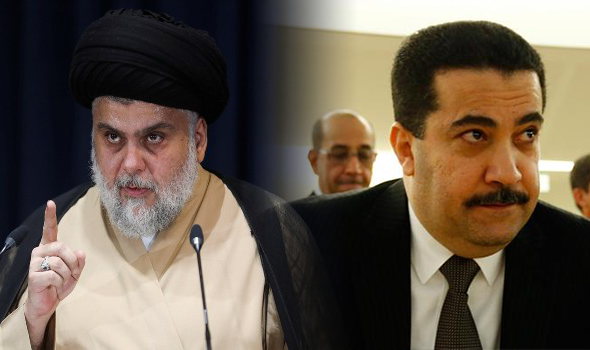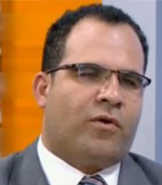The Iraqi political scene remains divided as ever, and as per the description of the head of the Sadrist movement, Iraq is now split into two camps, highlighting the difficulty of overcoming the divisions between the Sadrists and the “Coordination Framework”. Mediation efforts under the auspices of the UN representative have not succeeded, nor have those undertaken by Hady Al Amri, as a representative of the “Framework”, leaving in question what Iraq’s path out of the current impasse could be.
The prospects are not encouraging. Nuri Al- Maliki reiterated his abject rejection of Al-Sadr’s calls to dissolve parliament, following the latter’s meeting with the “Framework’s” representative. Al- Sadr’s appeal to the Judicial Supreme Council to dissolve parliament as a way out of the political impasse failed, as the Council refused, declaring it had no jurisdiction to do so, and it is not in its purview to interfere with the executive or legislative branches. The Council recommended that constitutional amendments should be made to avoid a recurrence of such an impasse in the future.
Al- Sadr and the “Framework” have both once more mobilized their followers onto the streets, with Al- Amri heading to Iraq’s Kurdistan region for further talks. It is unlikely that Kurdish factions will change their position in supporting Sadrist calls for dissolving parliament. It would also be difficult to reach an agreement with the Kurds on the issue of naming the prime minister, without also addressing the issue of naming a president. The Kurds might however agree to dialogue in principle, if they are presented with a proposal that includes concessions to Al-Sadr, to be passed on through them.
However, garnering support for dialogue appears to be also hampered by the personal animosity between the two figures at the center of the political scene, Nuri Al- Maliki and Muqtada Al -Sadr. The later appears to be incensed at the audio leaks attributed to Al-Maliki, and frequently alludes to “corruption” and those responsible for it, in veiled attacks on Al-Maliki. The latter has still made no move to withdraw his candidate for prime minister, Mohamed Al- Sudany, in order to diffuse the crisis. The hard stances of the various factions within the “Framework”, and their refusal to make concessions appear to be a reflection of Iran’s pressures in this respect. It’s aim appears to be ultimately weakening the Sadrist faction.
Difficult Choices
The political crisis in Iraq has brought everyone back to square one, with a choice between mobilizing the street or heading for new elections. Neither route has before proved successful. New elections are likely to reproduce the current stalemate as long as alliances remain unchanged. Mobilizing supporters onto the street remains risky and could spiral out of control. Moreover, new problems are arising as a result of the current impasse, such as the question of passing the national budget.
The “Framework” has in the meantime continued to move on several fronts to garner support for the option of dialogue. Its representative al Halbousy met with the speaker of parliament before heading to Kurdistan. Although what transpired in the meeting was not revealed, it appears there is some support for this option. The deciding factor will be A-l Sadr’s position, and if he will go along with the willingness of his allies to engage in dialogue. The question remains on the situation if his allies agree to engage but Al-Sadr holds back. Such a path would remove both Al -Sadr and Al-Maliki from the scene temporarily, and might allow for some breakthrough to change the calculations of the various factions. However, it must be pointed out that these parties have previously engaged in a ten -months- long round of negotiations that made no progress. A completely new approach is therefore needed for any new negotiations to have some chance of succeeding.
In sum, the political crisis in Iraq appears to continue to revolve around the same unhelpful options, and the balance of power continues to prevent either side from asserting its will. The option of new elections could garner sufficient support, but under the current circumstances they are likely to reproduce the same stalemate, and further complicate the situation. It appears unclear if the Iraqi factions can summon the will to engage in a new round of negotiations with a different approach that could provide the foundation for some degree of consensus.


